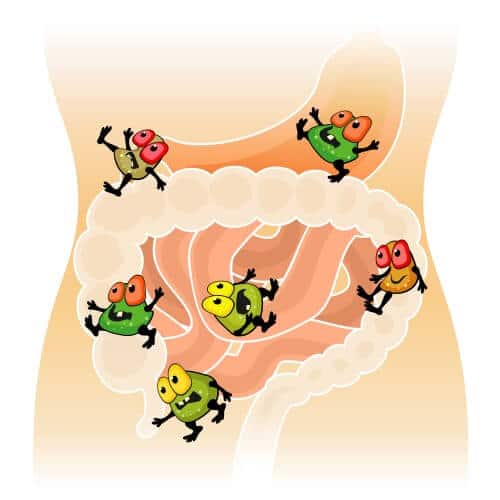
The whole world knows that vaccination in early childhood is a pillar of public health. But the vaccine is not equally effective for all children. why? For intestinal bacteria the solution
In the past, most children would be infected with the rotavirus, which causes acute diarrhea and thus the risk of death from dehydration, until in 2006 a vaccine that was given by mouth drops came on the market. But the virus still kills more than 450,000 children worldwide every year, mainly in Asia and Africa, because the vaccine is not always effective. Vanessa Harris from the University of Amsterdam decided to check why in these areas so many toddlers do not respond to the vaccine. She hypothesized that the bacteria residing in the children's colons play a role in this.
Harris and her colleagues, including collaborators from South Asia, tested 66 Pakistani toddlers and a control group of 66 matched Dutch infants, all of whom had received an oral rotavirus vaccine. Most of the Dutch children developed the expected immune response, although only ten Pakistani children reacted accordingly. In a genetic scan of stool samples taken from each child before vaccination, it became clear that the lives of the children who responded to the vaccine contained a wider variety of microorganisms. They also contained more bacteria from the proteobacteria group.
Many bacteria in this group move by means of a rod. The bat contains a protein called flagellin, which is known to increase the activity of cells in the immune system. An influx of such bacteria in the body can act as a natural booster of the immune system, much like a booster shot, says Bali Pulendran, an immunologist at Emory University School of Medicine, who was not involved in the study, which was presented in March 2015 at the Keystone Conference in Colorado.
In 2014, Pulendran and his colleagues demonstrated the role played by schistosomiasis bacteria in the success of the flu vaccine. Mice that live in a sterile environment and have no gut bacteria, and mice that were injected with only non-seduminous bacteria, did not produce antibodies after receiving the vaccine, which was effectively useless in them. In contrast, normal mice, and mice that had only been injected with schistosomiasis bacteria developed a typical strong immune defense. A small follow-up study the team is conducting in humans will soon find out whether humans given three different types of broad-spectrum antibiotics will develop a similar response.
Other bacterial factors may also play a role. A study published in 2014 in the pediatrics journal, Pediatrics, found a link between different compositions of gut bacteria in children in Bangladesh and between different responses to the tetanus and tuberculosis shots and the oral polio vaccine. Combining all of this data suggests that the bacteria that inhabit our bodies can help determine our immune response to ingredients. It is still unclear whether these findings will eventually lead to scanning the microbiome (the population of intestinal bacteria) or to the administration of specially designed probiotic supplements prior to receiving the vaccine.
There is no doubt that an in-depth study of all the tiny creatures living within us can help scientists significantly improve the effectiveness of vaccines. These small steps can save many thousands of lives.
The article was published with the permission of Scientific American Israel
